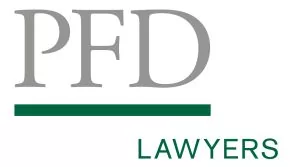On September 12, the Court of Appeal of Québec handed down an important decision on the liability of an investment advisor in the context of a financial crisis (London Life Insurance Company c. Long, 2016 QCCA 1434).
The case involves two immigrant investors who retained the services of an advisor. In 2005, they began to entrust the advisor with large sums. When the financial crisis occurred in 2008, the value of their portfolio plummeted. When the investors took a closer look at their portfolio, they discovered that the products they had been sold did not match their investor profile. They considered their losses to be the direct result of poor management by their investment advisor, who defended his actions by invoking the impact of the 2008 financial crisis.
Who is to blame for the losses?
Based on the adduced evidence, the Court first recognized that no one could have anticipated the financial crisis, which had an impact on all investments and not just those made by the investors involved in the case. Of particular interest, the Honourable Marie St-Pierre noted that an economic crisis which could not have been foreseen constitutes, in itself, evidence which may be relevant in the consideration of the professional liability of an investment advisor. However, she went on to add that the Courts refuse to consider abnormal stock market disruptions, such as a market crash, as constituting a force majeure given the highly speculative nature of this type of operation. She concluded that although an investment broker is not generally held responsible for market conditions, he or she may be held liable with respect to the occurrence of the risks which the client should have avoided had there been no fault.
In the abovementioned case, the Court concluded, from the outset, that the plaintiffs were not provided with the balanced portfolio they had requested. While the investment advisor's obligation is one of means and the advisor is therefore not obligated to a specific result, the advisor must still take reasonable means to obtain a satisfactory result. If a portfolio created by the investment advisor is not in line with the investor's profile, then the advisor may be at fault and damages may be awarded to the investor. The Court of Appeal therefore ordered the advisor to pay damages totalling over $300 000: the difference between the losses experienced during the financial crisis and the lesser losses which the investors would have suffered had their portfolio been better balanced. Evidence of a financial crisis and general market volatility will not necessarily provide a defense to an investment advisor where he or she is found to have been at fault when fulfilling a mandate.
With respect to investor profiles, an advisor should inquire about the client's expectations and priorities, assess his or her needs, and ensure that the information is recorded in the investor's personal file. The information should include the level of risk with which the investor is comfortable with and the timeframe within which he or she intends to use the funds which were invested. It is critical that the advisor acts in accordance with the investor's stated objectives and requirements throughout the mandate. Naturally, the investor's level of investment knowledge and expertise may play a key role in determining the liability of the advisor.
About Mackrell International - Canada - Prévost Fortin D'Aoust is a Quebec based business law firm with offices in Montreal, Saint-Jérôme, Boisbriand, Sainte-Agathe-des-Monts and Laval, and a member of Mackrell International. Mackrell International - Canada is comprised of four independent law firms in Alberta, British Columbia, Ontario and Quebec. Each firm is regionally based and well-connected in our communities, an advantage shared with our clients. With close relations amongst our Canadian member firms, we are committed to working with clients who have legal needs in multiple jurisdictions within Canada.
This article is intended to be an overview and is for informational purposes only.

